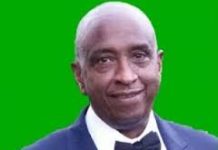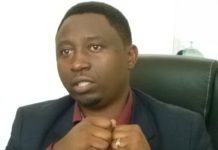In his attempt to condone a wicked intention to sell the idea of a third term in favor of Paul Kagame at expense of democracy, Joseph Rwagatare wrote in the pro- government newspaper The New Times that not the term limits, rather the track record counts whilst determining who should and should not be elected or reelected. Rwagatare misses the point and, purposely or not, misleads the readers to make us believe that a political party means exclusively its leader. Far from the truth!
It is true that a particular political party could get reelected in subsequent campaigns. The leaders as individuals, however, must have limitations on electability because of main reasons that vary from one society to another. I intend to explain below to underline once for all that in a society like ours, given our far and recent historical experience, the culture of peaceful political changeover must be privileged. It is imperative unless we forgot where we come from.
- The Law and its intention
Although the law is one thing necessary in a society, its applicability and implementation should remain in accord with its intention. For instance, here we are talking about the presidential term limit. All anyone can read in the constitution is that famous article #101 which states that
“The President of the Republic is elected for a term of seven years renewable only once. Under no circumstances shall a person hold the office of President of Republic for more than two terms”.
This is what the law says. It is the law. Much more however, is hidden behind that piece of information: the intention. Why did the people vote for the president to have no more than two terms? This is what Mr Rwagatare, the RPF, President Paul Kagame and his acolytes should be reminding the folks who ignorantly or forcedly are tirelessly calling for tampering with the constitution in order to reinstitute Kagame once or more times again.
To answer, let us remember: Going back into our history from the kingdom time via the first and second republics to the RPF’s regime, we were unlucky to experience leaders who wanted or were forced either by beliefs, entourage or greed, to be in charge until they die. Let me remind Rwagatare that no King could be enthroned in presence of his predecessor. The elder had to die either naturally or killed. The same tradition passed over into republican regimes. Habyarimana felt insecure in presence of Kayibanda. Kagame could not be in power in presence of Habyarimana. In fact, the RPF took up arms alleging Habyarimana amongst other things that he had remained in power for so long, although he was repetitively elected at 99%! Had we respected the Arusha peace accords, Habyarimana would have gained other good two terms. Trust me!
With that in mind, the 2003 constitution intended to avoid similar scenarios. It was considered that an individual is born and dead but a nation remains. Thus the nation can live, prosper and develop tremendously even without that particular individual. That is why the article 101 intended to encourage leaders to respect the fact that no one is irreplaceable and to dissuade them to hold on power indefinitely because this could generate conflicts, wars and possibly genocides. Another important dream was that from that time on, Rwanda would have an ex president deservedly able to serve as a councilor owed to experience and with the hope to retire peacefully thereafter.
It is now I realize clearly that Kagame never dreamt of initiating good changes to set antecedence that further generations would follow. In fact the same Kagame who was there in 2003 when the constitution was in the making, the same Kagame who claimed that he will not be there as president come 2017, is the same one who thinks a third term is not a bad thing. Somebody say, “Shame on you Mr President”!
For some naïve observers and commentators, I hope Rwagatare is not among, “Kagame does not want it but the people want him”. Democracy is defined as a power of the people, by the people and for the people. Hence, the people have a powerful capacity which is bestowed upon them especially on the day of elections: the capacity to choose a leader of their interests. Everyone knows that in a police state like Rwanda the democracy does not exist, and so that capacity is banned not only via elections but also even during brainstorming of ideas to make policies that run the affairs of the nation. We have seen it every day; we saw it in reports that shouted out the RPF-led assassination of freedom of speech, strangulation of independent media and impediment to rights of association.
The capacity to choose leaders is also threatened by the dictatorial micro management groups, armed or not, whose role is to force the people to vote against their will and to rig elections using any form of strategy in favor of the incumbent. But now the RPF wants to show us that last night the people dreamt “well”, woke up and coincidently the government allowed them to speak out: “we want Kagame back”. Funny enough! That kind of games is known to us, thou shall not lie. If Kagame does not step down, the RPF will have wasted a golden opportunity to show that it can do at least one good thing during its lifetime.
- The human nature
If Rwagatare were promised a very beautiful gift on a condition that he reaches 200 years alive, he clearly would realize that the promise is untenable. Why? Because we know that in our days, no one lives for two centuries. It is the same for political parties and their leaders.
A political party is born, grows up and dies. When it is born it is too young to deliver, when it grows up it matures and performs well but after some time it gets too old to run the country. At that time, the party cannot offer anything. It starts deteriorating and fails its early and own principles which eventually attracted the people to trust it. Even when it claims to rejuvenate itself, the young minds are overshadowed by old folks who think they have experience, thus they should take the lead indefinitely.
A leader gets too old as well and too tired to keep doing a good job (if he ever did any). That is a natural reality we are faced with. Accepting it does not mean you are not the hero you claim to be or that you are not loved by the people. By the way, it is not a matter of love given the tough and quasi impossible tasks assigned to the leader. If they loved him, they would let him retire and if he loved Rwanda, he would refuse to take an extra term.
In conclusion
The people of Rwanda should revisit the reasons that made them vote the constitution that included the article 101 (assuming they really voted for it). If Kagame does not step down, he will have satisfied his ego but at expense of all economic growth and other things he has been praised for. What if the people stepped in to say “no” to this man? As a matter of fact, they are ready, willing and able to take their destiny in hands. Friends of Rwanda (not of Kagame alone) have already demonstrated their undoubted support to the blowing wind of change. A bon entendeur, salut!
Chaste Gahunde,
BA, Dip Commonwealth of Learning (COL) London, UK































































